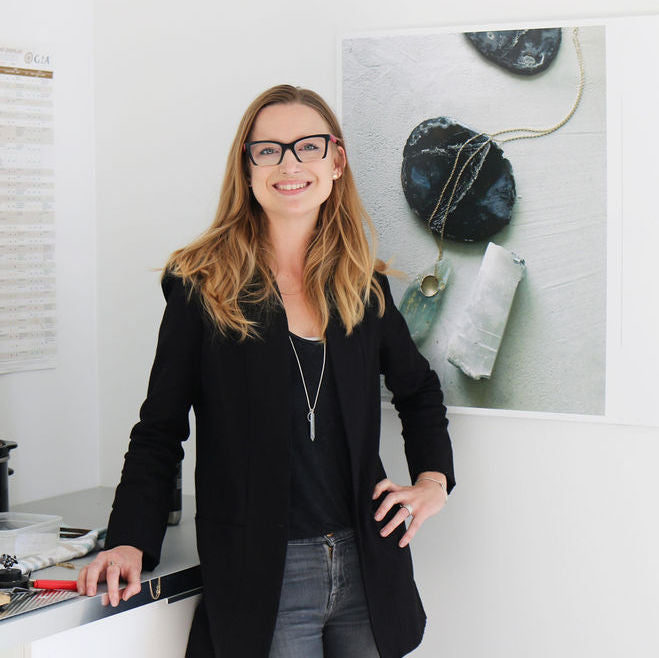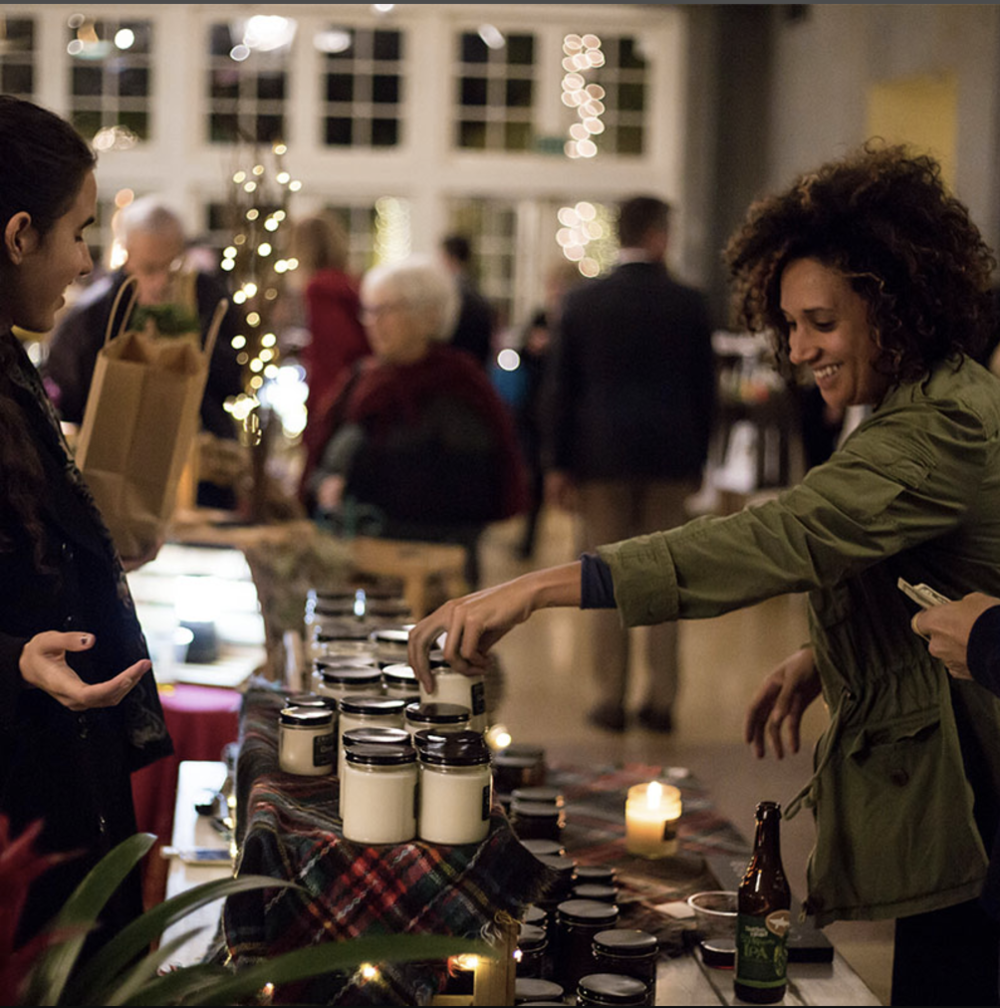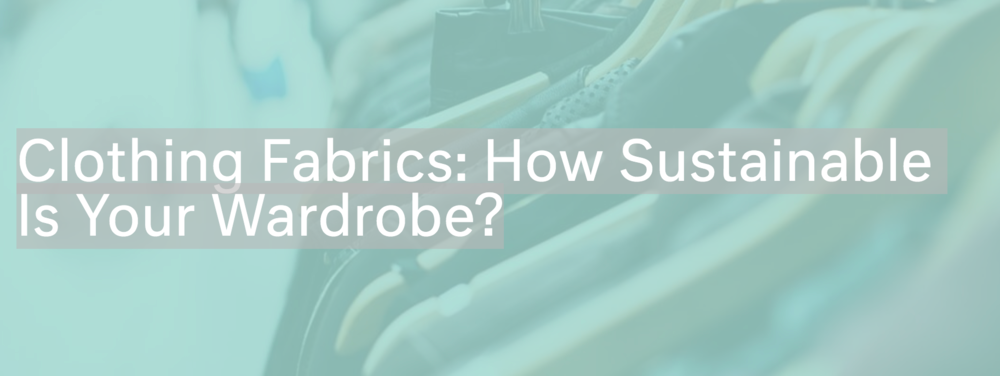Miniseries Challenge Part Two: Buying Sustainable
Welcome back to the second part of our miniseries challenge. As you may already know I (Hilda) am trying something new each week for the month of January. Last week I tried lowering my carbon footprint by having what I like to call “No Drive Week.” While last week's sustainability challenge was focused on abstaining from a certain action, this week’s focuses on being proactive and mindful. I wanted to actively practice sustainability and thought the best way to do that is by making sure my money goes where it counts.
When I was studying nutrition during college, one of my professors said something powerful that I will never forget. “You have the power to change industries. Every dollar you spend is a vote. And you can vote three times a day, so decide what is important to you…”
This deeply resonated with me and inspired this challenge. My professor was right, every dollar you spend is like a vote, and I wanted my votes to go toward sustainability. I am passionate about food and since I do not buy many items, I was focused on buying sustainable groceries and meals.
Sustainability can have a wide definition and many applications when it comes to products. Some companies focus more on human relations while others like to emphasize environmentally friendly practices. I however want to have clear guidelines for what I should purchase. I defined sustainability (for this challenge) as meeting one or more of the following practices.
- Small and local businesses that are run by families or close friends
- Large businesses that provide two or more of the following products and encourages sustainability
- Products take animal harm into mind and are grass fed, free range, or cage free
- Products do not contain palm oil and high fructose corn syrup.
- Products are sold in bulk to eliminate plastic waste
- Products are organic, vegan, or local
These definitions were important to me because I want to make sure I was buying quality food that also gave back in one way or another. All the food I bought fell in at least one of these categories if not more. It is important to note that although I bought food, I was still responsible for eating the food in my fridge and not spoiling previous products simply because I wanted to try sustainability. The goal after all was to be more sustainable, not contribute to the problem.
Day one through two:
Unfortunately, I did not leave my house right away, mostly due to the storm that San Diego encountered early Monday and ending mid Wednesday. Monday consisted mostly of me trying to finish my leftovers from Sunday’s dinner.
Tuesday was the most violent portion of the storm with strong showers and cold winds. I got asked to fill in as an assistant from one of my previous jobs, and took the opportunity to get out of the house, even if it was raining. I had also run out of leftovers and decided that some warm take out would be perfect to cuddle up on the couch with. This is where my troubles started. I know that in most cases fast food isn’t sustainable, but I do know that supporting local and small business is, which is why I decided to buy Phở, a Vietnamese rice noodle soup.
The area where I live in is known for being a small food desert, with only one big supermarket to supply the entire community. This lack of supply gave many small businesses the opportunity to meet the food demand. Not only is my community bustling with small shops and restaurants, but it also became the melting pot for many cultures. Walking down one of the main streets you will find a Chinese bakery, Vietnamese, Chinese, Ethiopian, Italian, and Mexican restaurants a few doors down from each other, and this is not including the many corporate fast food places. Supporting these small family owned business is critical for the survival of my neighborhood, especially since our community is starting to show early signs of gentrification, just like North Park.
Day three:
Although the rain lightened up a bit, I did not feel the need to go buy food since I still had my delicious Phở. I did not have much to do that day. I stayed home and focused on being able to finish work.
Day four:
The rain finally stopped, and the sun was shining enough for me to want to go outside. I was super excited because I had finally run out of food to eat, which only meant one thing. Shopping! But because my neighborhood is a food dessert, I had to pick the most convenient food store that carries and encourages sustainable products while still being within a drivable distance. While there were plenty of contenders, I could only consider stores close by since the point of the challenge is to be sustainable, and driving isn’t considered sustainable per say.
Sprouts and Trader Joe’s were the closest in proximity. I went to Sprouts Farmers Market first, since it was a store from my childhood, but under a different name. The reason I considered Sprouts a sustainable store is since they have in place responsible sourcing and operations including being sourced locally, and help develop communities through their Sprouts Healthy Communities Foundation. The bright store had a little bit of everything to offer, ranging from organics to vegan foods. I bought a few quality ingredients that I knew could be used in multiple times. I was happy I was able walk around the store, and although I was a little lost at first, I learned a lot. This was mostly because I would pull my phone out and google if a product was sustainable or not.

Some products were easier than others, like buying bulk cranberries and almonds. Others like chips, crackers, and cookies were a little more difficult and I had to look for ingredients to figure out if they were or not. Overall it was a wonderful experience; to simply know that with each beep of the price scanner, you are making a small difference was beyond exciting.
I also stopped by Trader Joes, but a lot of what I needed was already purchased at Sprouts, and in the end, I settled for a vegan sorbet. For me personally the smell of cooked bell peppers off put me. You see, I am allergic to bell peppers so the smell of them made me want to leave immediately. Sorbet was the only thing I was able to settle on before the smell got too overwhelming.
That night I constructed a beautiful salad with my new ingredients and some preexisting ones. Made from a mixture of organic romaine lettuce and baby greens, and topped off with apples, dried cranberries, diced chicken, almonds, cotija cheese (like feta but Mexican), and dressed with Italian dressing, it was exquisite.

(you can even see how I am drinking from a reusable straw)
Later that night I tried my snacks, and sorbet. I am sad to share that the sorbet was the most disappointing part of the food I bought. I found that it tasted fake and not very sweet. The potato chips, bunny crackers, and cookies all tasted like their more well-known competitors. The potato chips were especially surprising, full of a rich BBQ sauce flavor I thought they did better than traditional name brands.
Day five:
I did not do much on day Friday. The previous night had proven to be a difficult night, as I struggled to fall asleep and for some unknown reason woke up at 5 am. My roommate came back early from work and we spent the rest of the morning napping in the living room and watching Tv until the afternoon. Once I woke up I made myself another salad like the one described above, and focused on finishing some work.
Day six:
Saturday was a beautiful day. After the storm passed, San Diego took no time getting back to its beautiful 80-degree weather. I ate some breakfast, and noticed I had finished my lettuce and baby greens eating so many salads, so I went back to Sprouts for round two.
Although I did not buy as much this time, I was happy to buy more produce. Especially since I knew Monday meant the beginning of a new challenge, and the new challenge was not one I could avoid preparing for.

Day seven:
This was the day I wanted to enjoy with my (sorority) sister. She, like my best friend, had never been to the Hillcrest farmers market, but this time my trip was more focused on finding good food for her. The farmers market was filled with small vendors who all source locally, or run rely on the market for their income. We happily ate street tacos and pupusas (a traditional Salvadoran dish) while sipping on fresh mango lemonade. One fact that came as complete surprise to me was how many of the small vendors rely on farmers markets as their sole source of income. They do not own store fronts or restaurants, instead they travel with their specialty items and only sell during farmers markets.
At dinner time I made some more salad with the ingredients I had bought on Saturday, and finished the meal with some coconut milk dessert. It’s technically called dessert because it is not made from cream and therefore can’t be legally called ice-cream. But I must be honest, it was 10 times better than ice-cream. I loved the creamy texture, the robust coffee flavor, the decadent “fudge” swirl, and the crunch almonds. It has become one of my favorite ice-cream flavors, and I do not take ice-cream flavors lightly.
Reflecting on my week, I want to say that although I was stressed out buying only sustainable items, it was not that difficult. A little research helps make the difference when shopping in unknown territories. I think it is also important to come up with a definition for sustainability for yourself. Sustainability is such an important, but wide topic it can be difficult to follow. Not only that, but one person’s sustainable actions do not necessarily reflect all sustainable actions. Finding a self-definition for sustainability is important because it means you can pick the level of difficulty and hold yourself accountable to your standards. Being accountable for your actions is far more effective at keeping you disciplined.
I felt as though my choices really counted, and that my money was supporting companies or brands that have the same ethos as I did. I am not as scared to shop sustainable anymore and I want to include it in my regular shopping rotation. I know a few dollars might not be much, but I believe that every bit helps if you do what you can. Your actions might seem small, but like my professor said “You have the power to change industries. Every dollar you spend is a vote…” so... what will you vote for?





